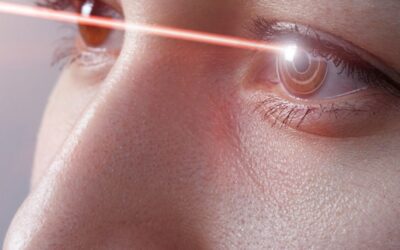Spring has sprung, and with that brings warmer weather, beautiful cherry blossoms and flowers in bloom. Unfortunately for some, we may notice our allergies blooming or worsening in severity as a result of pollen or mold spores.
Nearly 50% of Americans suffer from seasonal allergies, and of those, 80% will experience ocular symptoms which can be diagnosed as allergic conjunctivitis. Allergy sufferers may notice red, swollen, watery, and/or itchy eyes in addition to their runny nose and sneezing. Allergic conjunctivitis is not vision threatening, and is not contagious.
Although uncomfortable, we can often times easily prevent or treat ocular allergy symptoms. We can reduce our exposure to these allergens by wearing a wide brimmed hat or sunglasses, or we can rinse away the allergens in the eyes with saline or artificial tears after returning indoors. If that’s not enough, we can manage ocular allergies with cool compresses and some over the counter eye drops, but often times symptoms become so uncomfortable that prescription medication may be necessary. Oral allergy medications, like Allegra or Zyrtec, rarely provide total relief from ocular allergies. Those with ocular allergies can improve their comfort with prescription strength allergy drops or sometimes even temporary use of a prescription strength steroid eye drop.
By making an appointment with your ophthalmologist or optometrist, you’ll be certain that your allergic conjunctivitis is managed properly and you can comfortably enjoy all the beauty that spring is sure to bring.




0 Comments